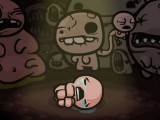Dear all,


In August 2010, Chet Faliszek announced Valve would begin to rotate biweekly custom-made campaigns on the official servers of Left 4 Dead 2:
Every two weeks we are going to feature a new community campaign on our servers. We will feature one campaign at a time to make it is easier to find games. We’ll be keeping it featured for two weeks so people can familiarize themselves with the maps for competitive play. 1)http://www.l4d.com/blog/post.php?id=4194
Though we wholeheartedly agreed with Valve on their choice to start their campaign off with 2 Evil Eyes, their subsequent picks have not been as bold as we had hoped, as the team has since gone on to pick Detour Ahead, City 17, Haunted Forest, Dead Before Dawn, One 4 Nine and I Hate Mountains. Now that the slow trickle of maps seems to have dried up – sans Cold Stream, of course, which is still a river running wild – we wanted to introduce to old and new players alike a list of five great Left 4 Dead 1 and 2 custom campaigns – that is, the best maps Valve is yet to highlight.
 We applied a loose criteria to this list of Left 4 Dead 1 and 2 maps. First and foremost, each level was to be available for both games. Second, we expected proper playability on the “expert” difficulty setting. Third, all these levels enjoy a degree of popularity in the community, so as to make finding servers and players easier. Fourth, we did somewhat consider artistic merits like overall look and feel, setpieces, setting and brushwork.
We applied a loose criteria to this list of Left 4 Dead 1 and 2 maps. First and foremost, each level was to be available for both games. Second, we expected proper playability on the “expert” difficulty setting. Third, all these levels enjoy a degree of popularity in the community, so as to make finding servers and players easier. Fourth, we did somewhat consider artistic merits like overall look and feel, setpieces, setting and brushwork.
Fifth, we also sought out campaigns that would adhere to the gameplay standards and Left 4 Dead fiction as defined in practice by Valve. This meant no nasty surprises, traps, or major changes to campaign flow. The reason all the campaigns below have been tested and completed on the “expert” difficulty level is because we found that this particular setting best reveals the extent of balancing (or lack thereof) in terms of campaign length, pacing and structure.

References

I had (erroneously) assumed that I would never, ever be writing about s#$t in video games, but after recently posting my conceptual/generic analysis of The Binding of Isaac, questions of merit, value/quality and meaning, as well as the overall relevance of video game criticism, emerged – chiefly at Rock, Paper Shotgun, as usual, the Mecca of Video Games that it so happens to be (props to the poster Hexagonalbolts for the tip).
A swift return to the wonderful, wonderful world of Isaac is thusly in order. Obviously, being the hotbed for argument that it inherently is thanks to its religious leanings, The Binding of Isaac has been more or less at the centre of critical attention ever since its release.
Still, the mere idea of taking Isaac, well, seriously, seemed to produce in some commenters a more intensified response yet, and indeed, many questions were asked, more arguments had, with many an opinion ranging from the honest to the ironic. The question seemed to be, isn’t it simply too much to write about Isaac like this? Here are a series of strawmen of some of the aforementioned:
I’m not so sure that I can come even close to answering these questions in just one article, but on the whole, the question of “Why bother?” seems to encompass the rest of them. We’ll stick to that, for the most part. The reason I’m quick to jump into the fray with an in-depth response is that I find this particular discussion, of meaning, to be relevant for video game criticism on the one hand, and separate from the “games as art(?)” discourse on the other, even if this doesn’t appear to be the case first-hand.
The one chief aim of this article, then, is to answer the question of “Why bother?” especially as it pertains to the semantic/narrative functions of video games, as well as to discuss our understanding of video game criticism (its aims, objects, uses). As mentioned, I will rather try work my way around the question of “art”, only ever dipping my toes in its waters with the intention of otherwise staying firmly ashore. (more…)
Not much longer now before the Reapers arrive to wipe out galactic civilization.
![]() Mass Effect 3 is almost upon us, and I’m hardly ready. For anticipation is not just a case of checking the calendar and willing the days to advance quicker, there is work to be done before March 6th comes around. Few games in history have featured what is the Mass Effect series’ main selling point: the ability to carry your save forward into the sequels in order to retain your character and the decisions you have made over the course of the games. So fans aren’t just looking forward to playing the last instalment of a trilogy, they’re looking forward to playing the last instalment of their trilogy. Every decision you make defines your Commander Shepard, decides your relationship with other characters – possibly even their fate, and shapes a universe that is unique to your save. Loading up a game with that save will bring a story that recognises you and remembers what you have done. The series has already provided an unprecedented level of player authorship over narrative, and it only remains to be seen whether the final chapter can deliver a satisfying conclusion.
Mass Effect 3 is almost upon us, and I’m hardly ready. For anticipation is not just a case of checking the calendar and willing the days to advance quicker, there is work to be done before March 6th comes around. Few games in history have featured what is the Mass Effect series’ main selling point: the ability to carry your save forward into the sequels in order to retain your character and the decisions you have made over the course of the games. So fans aren’t just looking forward to playing the last instalment of a trilogy, they’re looking forward to playing the last instalment of their trilogy. Every decision you make defines your Commander Shepard, decides your relationship with other characters – possibly even their fate, and shapes a universe that is unique to your save. Loading up a game with that save will bring a story that recognises you and remembers what you have done. The series has already provided an unprecedented level of player authorship over narrative, and it only remains to be seen whether the final chapter can deliver a satisfying conclusion.
In his PopMatters article “Fearing God, Fearing the Body: The Theology of ‘The Binding of Isaac’”, G. Christopher Williams discusses various aspects of Edmund McMillen and Florian Himsl’s ingenious (and mildly blasphemous) Zelda/Roguelike hybrid, The Binding of Isaac. Although his reading of the game astutely homes in on the “meatier” parts of Isaac – that is, the implications of the game’s loathsome representation of the corporeal -, I do nevertheless want to point out some omissions in Williams’ treatment of the game.
The article in question is altogether complete in its own right, but also lacking in discussion of the themes, concepts and terms that are nevertheless utilized in the analysis. In this way, I shall be focusing on the things that are left unsaid (intentionally or unintentionally) in Williams’ story. In my complementary article below, I will attempt to shed lots and lots of extra light on what I perceive to be these omissions, which include the genre of body horror, the grotesque, Freud’s conception of the uncanny, as well as the concepts of abjection and the abject.